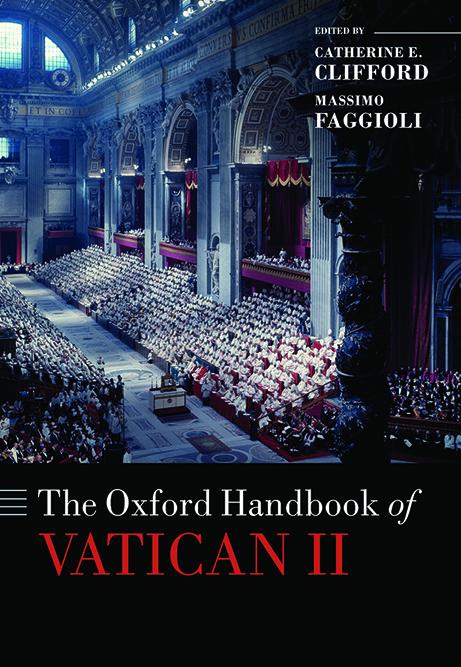The Oxford Handbook of Vatican II attempts a Herculean task. Part reference book, part introduction to a complex historical subject, part analysis of a still ongoing reception of the conciliar teaching, part international symposium, this Hydra of a book proves to be a Herculean achievement. Those in the English-speaking world who teach Catholic theology now have a book at hand that comprehensively considers virtually every important post-conciliar subject, filled with references and additional resources, against which scholars and average Catholics can crosscheck their arguments and intuitions.

Cover to 'The Oxford Handbook of Vatican II' (Courtesy of Oxford University Press)
The first section of the book looks at the context and the sources of the Second Vatican Council itself, and the first chapter was penned by the late Jesuit historian John O'Malley. "Vatican Council II did not fall out of the heavens," O'Malley begins. "Like any institution and most especially any institution of the Catholic Church, the council can be understood only in the context of the situations and the issues it inherited from the past that the fathers of the council decided to address."
As in his entire career, in this chapter O'Malley's interpretative analysis would not come as a surprise to the subjects about whom he writes. Put differently, O'Malley eschews ideology and his narrative builds from his sources, it does not obscure them or force them into an analysis that is quite distinct from their own experiences and views.
O'Malley's summary of the approach the Council of Trent took to its urgent task of responding to the Protestant challenge will be well known to those who have read his book on that council, as will his assessment of Vatican I. What is remarkable here is his concise, conceptual analysis of the challenges the church faced during the Enlightenment and the development of theological ideas and movements between the first and the second councils held at the Vatican.


No comments:
Post a Comment